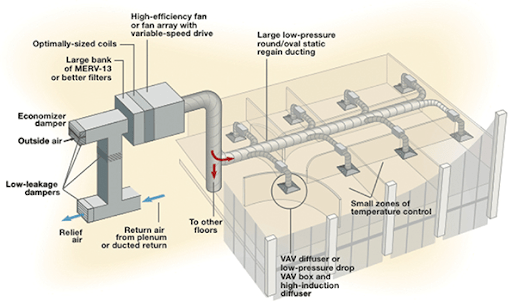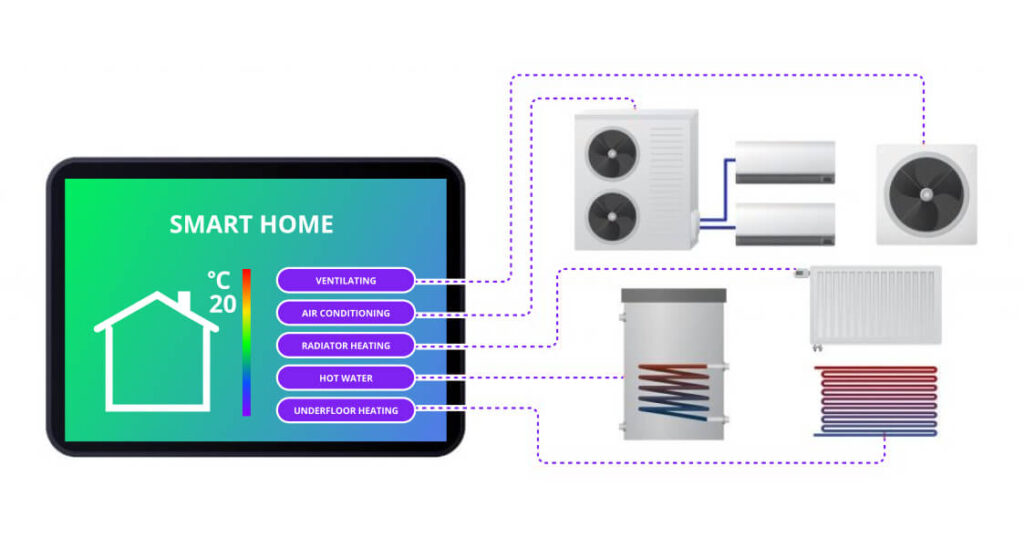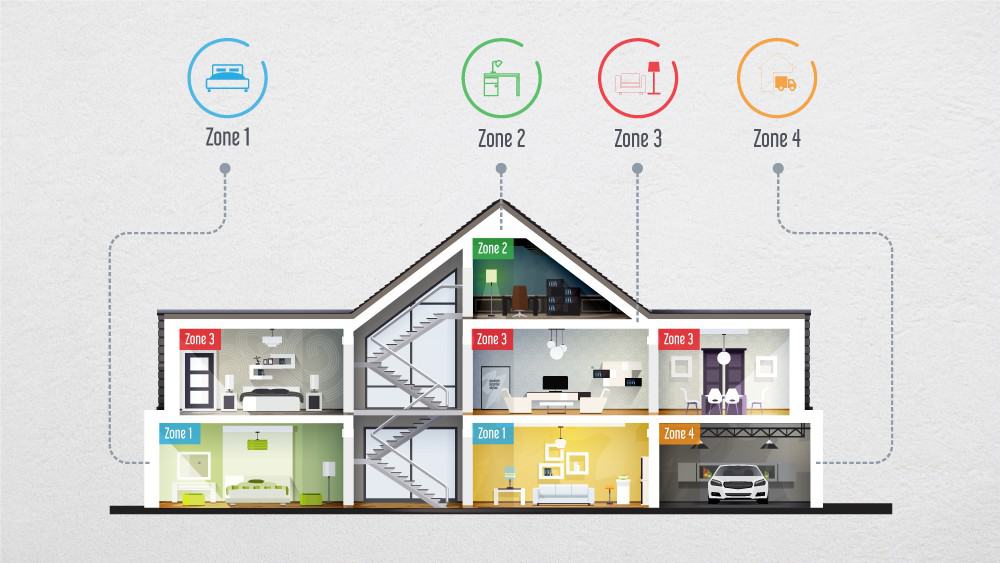
Are you familiar with HVAC systems? These are the unsung heroes that keep us comfortable in our homes and offices year-round. But have you ever stopped to think about how far they’ve come since their inception? From simple heating and cooling units to complex systems that can be controlled from your smartphone, smart technology has revolutionized the HVAC industry. In this blog post, we’ll take a closer look at how smart technology has changed HVAC and what the future holds for these essential systems. So sit back, relax, and let’s dive into the world of modern HVAC!
What Is HVAC?

HVAC stands for Heating, Ventilation, and Air Conditioning. It refers to a system that regulates the temperature, humidity, and air quality of indoor spaces. HVAC systems can be found in homes, offices, hospitals, schools, and other buildings.
The heating component of an HVAC system is responsible for keeping indoor spaces warm during cold weather months. This is typically accomplished through the use of a furnace or boiler that heats water or air which is then distributed throughout the building via ducts or pipes.
Ventilation refers to the process of moving air in and out of indoor spaces. Proper ventilation helps maintain good air quality by removing contaminants such as pollutants, allergens, and moisture from the air.
Air conditioning is used to cool indoor spaces during hot weather months. This is achieved through the use of refrigerant gases that absorb heat from inside your home and expel it outside.
HVAC systems are essential for maintaining comfortable living and working environments year-round. They have come a long way since their inception thanks to advancements in smart technology which we will explore further in this post!
The History Of HVAC

The concept of HVAC, or heating, ventilation, and air conditioning, has been around for centuries. In ancient Rome, wealthy citizens heated their homes using a system called hypocausts that circulated hot air under floors raised on pillars. The Chinese also used similar systems to heat their buildings during the Han dynasty.
During the Industrial Revolution in the 19th century, steam-based heating systems became popular in commercial buildings. It wasn’t until the early 20th century that central air conditioning was first introduced in movie theaters to keep patrons comfortable during hot summers.
In the mid-20th century, residential air conditioning units became more affordable and widespread thanks to advancements in technology and materials. This allowed for homes across America to be cooled with ease during sweltering summer months.
As concerns about energy efficiency grew in recent decades due to rising energy costs and environmental concerns, HVAC technology has continued to evolve. Smart thermostats have become increasingly popular as they allow homeowners greater control over temperature regulation through remote access via smartphones and other devices.
Throughout history, HVAC technology has continually evolved based on changing needs and technological advancements – from ancient Rome’s hypocausts all the way up to modern smart home solutions.
How Has Smart Technology Changed HVAC?

Smart technology has revolutionized the way we control HVAC systems. In the past, HVAC systems simply ran on a set schedule and could not be adjusted remotely. With smart thermostats, however, homeowners can now monitor and adjust their home’s temperature from anywhere in the world using their smartphone or tablet.
This means that homeowners no longer have to come home to an uncomfortable house after a long day at work. They can adjust the temperature before leaving work so that it is just right when they arrive home.
In addition to remote access, smart technology also allows for more precise temperature control. Smart thermostats can learn your habits and automatically adjust the temperature based on your preferences.
Furthermore, some smart HVAC systems are equipped with sensors that monitor air quality and humidity levels in real-time. This ensures optimal comfort while also improving indoor air quality.
Smart technology has given us greater control over our homes’ heating and cooling systems than ever before. As this technology continues to evolve, we can expect even more advancements in how we manage our HVAC systems for maximum efficiency and comfort.
The Future Of HVAC

The future of HVAC is bright and full of potential. As technology continues to advance, HVAC systems are becoming more efficient, cost-effective, and eco-friendly than ever before.
One major trend in the future of HVAC is the growth of smart home technology. With the rise of Internet-of-Things (IoT) devices, homeowners can now control their heating and cooling systems from anywhere using a mobile app or voice commands. This means that users can easily adjust their temperatures to fit their lifestyle needs while also saving money on energy bills.
Another exciting area for the future of HVAC is renewable energy sources. More homeowners are turning towards solar panels and geothermal heat pumps as a way to power their homes without relying on traditional fossil fuels. This shift towards renewable energy will not only benefit individual homeowners but also help reduce our collective carbon footprint.
It’s clear that the future of HVAC is going to be focused on smarter technologies that offer greater efficiency, cost savings, and environmental sustainability. As these trends continue to evolve over time, it’s important for both consumers and manufacturers alike to stay up-to-date with all the latest developments in order to maximize benefits for everyone involved.
Conclusion
It is clear that smart technology has revolutionized the HVAC industry, making it more efficient, cost-effective, and environmentally friendly. The integration of sensors, automation systems, and remote controls has allowed us to control our HVAC systems with greater precision than ever before. As a result, we can save money on energy bills while reducing our carbon footprint.
As this trend continues to evolve in the future, we can expect even more advancements in smart technology for HVAC systems. With the growing demand for sustainable living practices and green buildings, there will be an increasing need for innovative solutions that are both energy-efficient and eco-friendly.
It is safe to say that smart technology has transformed the way we think about heating and cooling our homes and businesses. By embracing these new technologies, we can create a brighter future where comfort meets sustainability.

